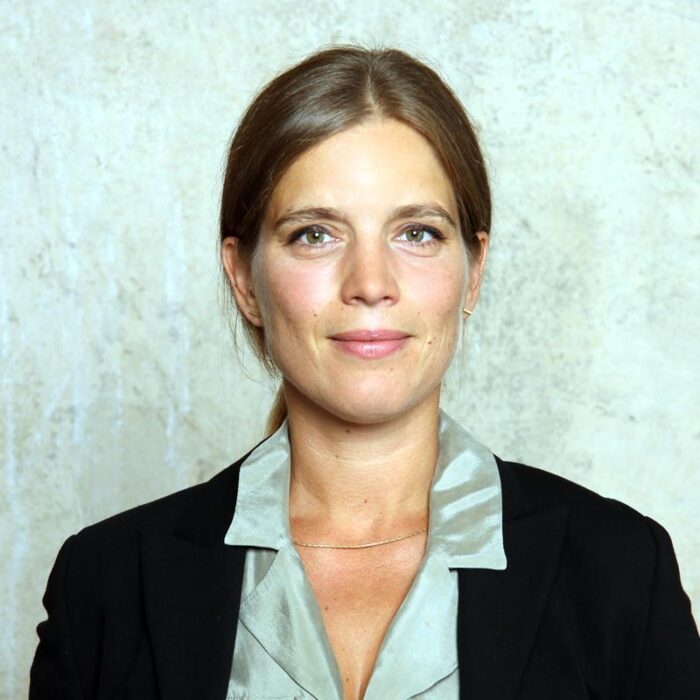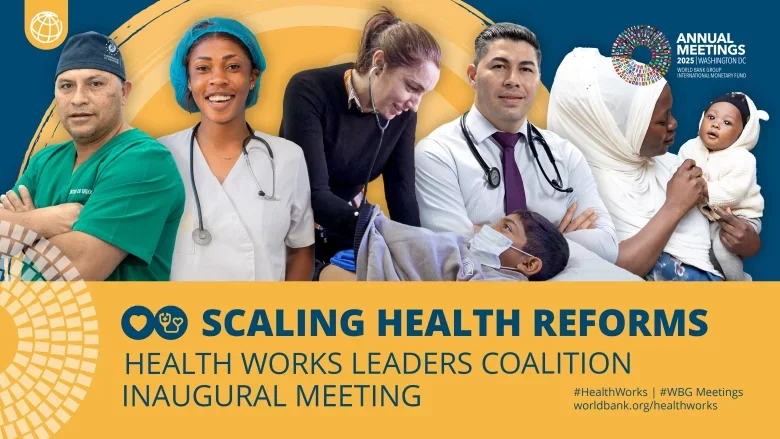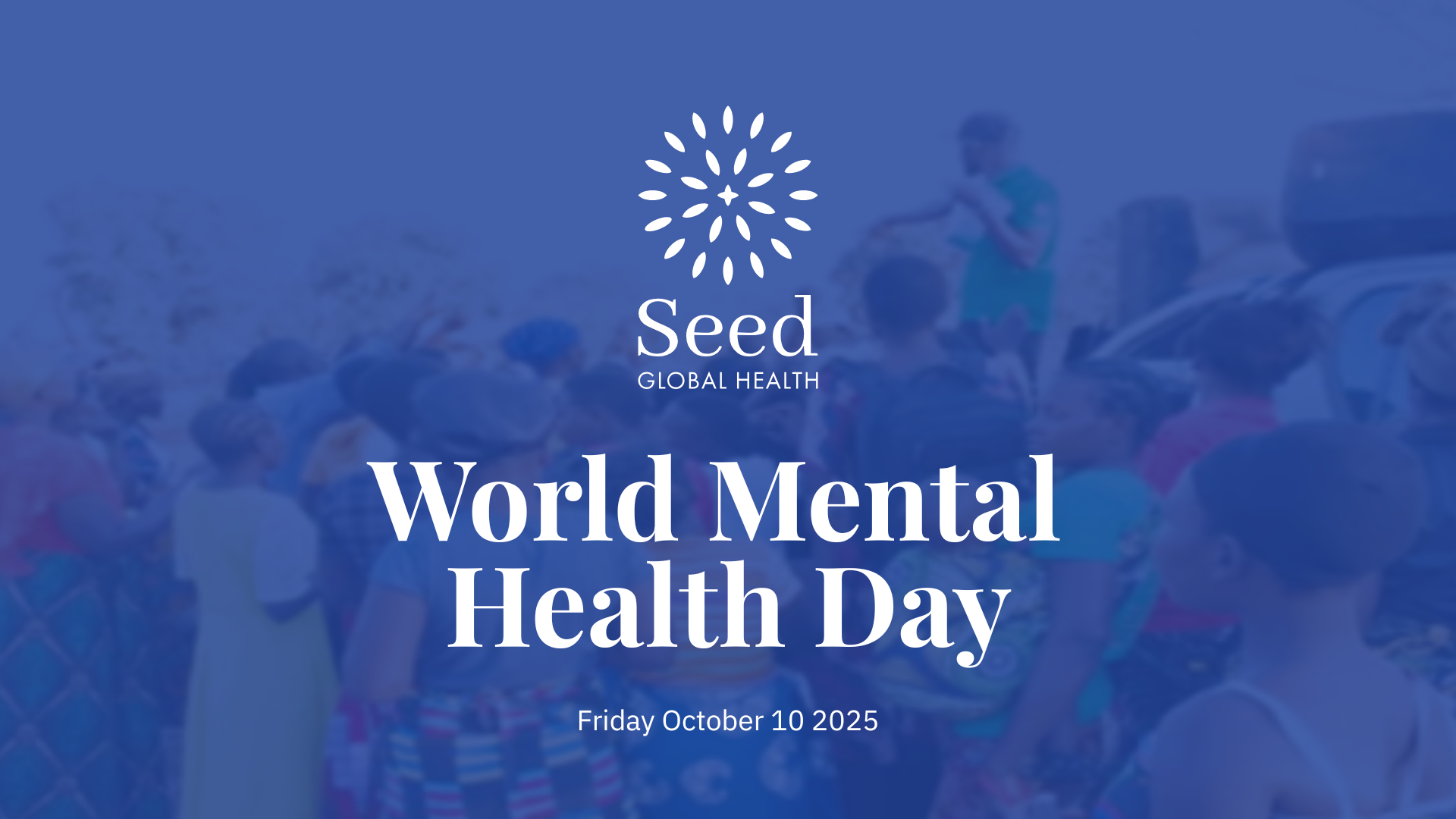
Meet Marionka Pohl, Shaping Seed’s Policy and Strategic Vision
We’re excited to welcome Marionka Pohl, our new Senior Director of Policy! Get to know more about who she is, her aspirations in this role, and how she’ll help drive our strategic plans forward.
Welcome to Seed! Can you tell us a little bit about what drew you to this role?
I was drawn to Seed’s focus on health workers and the global health workforce. The role of health workers is often overlooked in policy debates, even though they are one of the foundational pillars of strong and resilient health systems. The World Health Organization includes them as part of the core building blocks, yet in many discussions, especially at the global level, they are not prioritised.
Health care workers are central to every response: pandemics, climate change, humanitarian emergencies, you name it. But they are not getting the attention or investment they deserve. I want to bring that issue higher on the policy agenda and advocate for more visibility and investment in health workers at all levels.
I was also drawn to the human component of this work. Health workers are people first. In a tumultuous time like today we need to centre the people in healthcare. Everyone deserves access to health; it’s a fundamental human right. But the very people who ensure others can realise that right often struggle to realise their own, whether it’s in terms of fair pay, decent working conditions, or professional respect.
This is particularly important when you consider gender. Around 70% of the health workforce are women. That means investing in health workers is also a way of advancing gender equity.
There was also a professional dimension for me. I wanted to help build something. In this role, I will have the opportunity to help build and shape a department from the ground up. I like the challenge of organisational development: building structures and shaping strategy with the right people.
What’s one unexpected lesson you’ve learned in your previous policy work that you’re bringing with you to Seed?
I wouldn’t say it’s unexpected but something that’s become really clear to me and grown into a conviction: influencing policy requires you to be ready at all times. That means having your policy messages in place, knowing your position, be close to the pulse of policy processes, but also being agile enough to adapt when something shifts, because things move fast.
You might find out at 6pm that a parliamentary committee is meeting the next morning to decide on something relevant. I have learnt that one of the most important things in policy influencing is proximity and knowing when decisions are being made and who is involved. It’s not just the ministers but also their teams in the background who do the research, write the papers. Building relationships is a key component of this work.
I’ve also learned how essential it is to adapt your messages to different audiences. You might have one core message, but if you are speaking to four different political parties debating the same piece of legislation, you can’t use the same language for all of them. You need to understand their priorities and strategic directions, what resonates with conservatives will not land with social democrats, and vice versa.
I’ve learned that moral arguments in global health only work to a point with decision-makers. During COVID-19, calls for fair vaccine access through COVAX failed as rich countries kept most of the supply, showing the “health for all” message didn’t land. If this argument doesn’t resonate, we must ask what will and work toward that.
What do you envision for Seed’s policy work moving forward? How does it reinforce and strengthen our mission and vision?

I envision Seed’s policy work becoming more strategically aligned across national, regional, and global levels. That means not only clarifying how our broader global conversations are furthering national (policy) priorities but also identifying where influence is truly exercised—and engage accordingly. This means shifting our advocacy to decision-making spaces that go beyond ministries of health, such as ministries of finance or trade in donor countries, and ensuring our messaging resonates with a wider range of actors, including more conservative or emerging global voices.
Messaging matters, but it must be tailored to the audiences we seek to influence. We should review our stakeholder landscape, both who is stepping into funding gaps and who aligns with our values and mission, and realign our engagement strategy accordingly.
I also hope we strengthen the foundation of our policy work by building a robust monitoring and evaluation system, with clear indicators to track whether our efforts are driving meaningful outcomes.
Finally, I believe we must continue to advocate for strong, integrated health systems. There’s been important discussions within Seed about moving beyond vertical approaches; I’d like to help make that real. That means supporting holistic health system strengthening, promoting country-led pooled financing to reduce fragmentation, and prioritizing accountability frameworks that track equity, outcomes, and economic returns—not just disease-specific metrics.
We should be asking: how are governments already advancing this agenda, how can we leverage the current changes in the (global) health landscape, and how can our policy work truly further national policy priorities.
If you could wave a magic wand and change one thing about global health policy overnight, what would it be?
If I could wave a magic wand, I’d want the global health community to confront the power dynamics shaping our system. We still rely too heavily on external aid, with calls for “self-reliance” that ring hollow when structural barriers aren’t addressed. Governments need strong domestic resource mobilization strategies to fund health, yet many are trapped by debt repayments, weak tax systems, and illicit financial flows draining their budgets. How can we expect countries to prioritize health spending when they’re servicing unsustainable debt burdens?
Real self-reliance means tackling these barriers head-on and creating fiscal space for health. At the same time, we need to ensure that investments in health by donors are furthering national priorities, and that donors’ efforts (be it institutional or private sector donors) align and don’t duplicate. Ultimately, success is when health systems are strong enough that external actors—including us—become less relevant. If I had a magic wand, I’d push for an honest conversation about what it takes to build systems strong enough not to need us in the long term.
What’s the best piece of career advice you’ve ever received, and how has it shaped the way you approach your work today?
Just start working, and don’t worry too much about whether you can actually make it. Begin the work and figure it out as you go. Don’t focus on the big hill you have to climb, break it down into smaller steps, maybe ten little ones, and just start with the first.
Take on opportunities that might seem too big for you, you will grow into them. You are not going to learn if you always stay in your comfort zone. Of course, it can feel overwhelming. But if you take it step by step, if you just start, you will eventually get where you want to go. It might take time, but that’s also where growth happens.
When I started doing public speaking engagements, I was nervous, and the first time was tough. But I still did it. And 2023 and 2024 were the busiest years with many speaking opportunities. I did it maybe once a month: panel discussions, roundtables, that kind of thing. It got easier each time. You get practice and ultimately realize you are capable of things you didn’t think you were.
Whether it’s a podcast book or article, what has been a recent favorite read or listen that I stayed with you and why?
I love the Devex podcast, This Week in Global Development. The episodes are short, just 20 to 30 minutes, which makes them perfect to listen to during a run or doing something else. They cover the key issues happening in global development and global health. The podcast gives me quick overview of what’s happening around the world. It helps me stay informed.
On the reading side, I have been re-reading the works by the German poet and writer Hermann Hesse, particularly Demian. In this book he explores the journey of human self-discovery, identity, and inner conflict.
Who is the person you admire the most and why?
I can’t say there’s one specific person I admire. But I have met people throughout my life, especially during certain experiences who have challenged my outlook on life, and I was left in admiration.
During a study placement in Russia, I met people who had almost nothing, some were poor and living in harsh conditions, but they welcomed me and smiled with me. That stayed with me.
When I was in Kenya for my master’s research, and I spent months doing interviews in rural areas, I met so many people who, despite being in challenging circumstances, were welcoming and enthusiastic about life.
In Germany where I live, I see people who may not have the same privileges I do, just going about their lives, showing resilience, and doing what they need to do to make life meaningful and I admire that. It humbles me.
What are some things you enjoy doing outside of work?
I like running but it’s been a bit challenging lately because of competing priorities. I also love climbing as well, like mountains, the higher you go, the better. I enjoy the challenge.
I’ve got two kids, so, I also really enjoy spending time with my family. I also love reading, mostly books on global health, philosophy, and psychotherapy.

